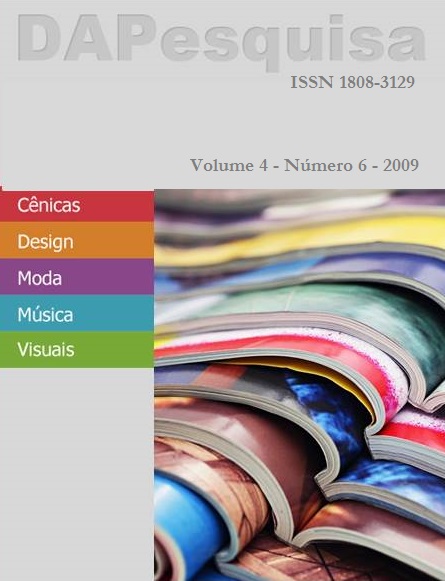A música como narrativa de identidade nacional no Brasil de 1900 a 1950
DOI:
https://doi.org/10.5965/1808312904062009530Keywords:
música, identidade nacional, linguagemAbstract
A identidade nacional é criada com o intuito de criar a imagem de uma nação consoante os interesses e critérios relevantes de cada período histórico e o pensamento hegemônico, pelos quais se busca uma unidade, forjadora de um elo imaginário que une uma população e fortalece o conceito de nação e de sua soberania através de elementos e símbolos significativos. Ela é desenvolvida a partir de discursos que operam de forma pedagógica nos indivíduos. Estes discursos podem se manifestar em diversas linguagens, sendo a música uma delas. Pode-se notar que a formação da música popular brasileira do fim do século XIX e começo do XX está diretamente ligada ao fomento do capitalismo, cresceu junto à urbanização e ao surgimento de novas classes sociais e econômicas.Downloads
Downloads
Published
How to Cite
Issue
Section
License
Copyright (c) 2018 Mara Rúbia Sant’Anna, Káritha Bernardo de Macedo

This work is licensed under a Creative Commons Attribution 4.0 International License.
Authors who publish in this journal agree to the following terms:
The authors retain the copyright and grant the journal the right of first publication, with the study being simultaneously licensed under the Creative Commons Attribution-Noncommercial License, which allows the sharing of work with acknowledgment of authorship and initial publication in this journal.
This journal, following the recommendations of the Open Access movement, provides public access to all its content, following the principle that free access to research leads to a greater global exchange of knowledge.
Plagiarism in all its forms constitutes unethical publication behavior and is unacceptable. The Journal DAPesquisa reserves the right to use software or other methods of detecting plagiarism to analyze submitted works.





